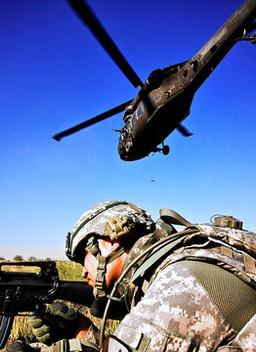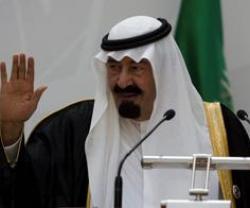The Wall Street Journal reported that the Obama administration plans to include attack helicopters in an expanded arms package for Saudi Arabia, swelling the size of the proposed deal to about $60 billion over 10 years, according to officials familiar with the matter. The deal, yet to be finalized, would be the largest overseas U.S. arms sale ever.
The size and scope of the Saudi deal stoked concerns in Israel that Washington risked undercutting Jerusalem's military edge. Officials said some weapons systems strongly opposed by the Jewish states will not be included in the package.
New details about the deal include plans to sell the Saudis about 70 UH-60 Black Hawk helicopters and up to 60 Longbow Apache attack helicopters worth about $30 billion. That comes on top of a previously disclosed $30 billion transaction that includes 84 Boeing Co. F-15s and upgrades to older fighters in the Saudis fleet.
Boeing makes the Apache; the Black Hawk is manufactured by United Technologies unit Sikorsky.
The package will also include flight simulators, spare parts and long term support for the planes and helicopters, according to these sources.
The Obama administration is expected to formally notify Congress about the deal next month. Lawmakers close to Israel could hold up parts of the sale or seek assurances of their own that Israel's military edge won't be compromised.
The Pentagon declined to comment on the details of the package, which are classified.
U.S. officials said weapons systems were excluded from the sale if they were deemed not conducive to regional stability, or if they were objectionable to Israel or Congress.
To that end, officials said the Saudi F-15s would not be equipped with so-called standoff systems, which are advanced long-range weapons that can be attached to the fighter for use in offensive operations against land and sea targets. Giving standoff systems to the Saudis would have crossed Israel's red line, an official in the region said.
Officials said certain weapons opposed by Israel would not be included in the Apache sale but declined to provide details.
The Saudi deal could increase pressure on Israel to commit to buying the planned F-35, also known as the Joint Strike Fighter, which Lockheed Martin could start delivering as early as 2015, around the same time the Saudis would start getting new F-15s.
A senior U.S. defense official said the JSF would be "the most stealthy, sophisticated and lethal tactical fighter in the sky”, adding “the F-15 will be no match for the F-35."






















